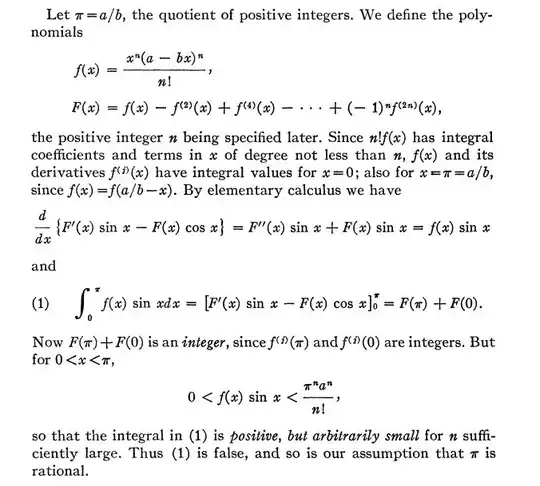First regarding the inequality :
Consider the polynomial $f(x)$ on the interval $[0,\pi]$,
$$ f(x) = \frac{x^n(a-bx)^n}{n!}, $$
$$ f(x) = \frac{x^n a^n (1-bx/a)^n}{n!}, $$
$$ f(x) = \frac{x^n a^n (1-x/\pi)^n}{n!}, $$
Now note that $0\leq x/\pi \leq 1$ which implies that $0 \leq (1-x/\pi) \leq 1$
$$ f(x) = \frac{x^n a^n }{n!} (1-x/\pi)^n \leq \frac{x^n a^n }{n!} , $$
Now just note that $x<\pi$.
$$ f(x) = \frac{x^n a^n }{n!} (1-x/\pi)^n \leq \frac{\pi^n a^n }{n!} , $$
Regarding the conclusion :
Niven showed three properties of the integral which are incompatible.
1) The integral is positive for all $n$.
2) The integral is an integer for all $n$.
3) The integral can be made arbitrarily small for sufficiently large $n$.
The smallest positive integer is $1$. Conclusion (3) tells us that there is a large enough $n$ to make the integral smaller than $1$. Therefore conclusion (2) and conclusion (3) contradict each other.
This contradiction is a consequence of the assumption that $\pi$ is rational, so we conclude that $\pi$ is not rational.
